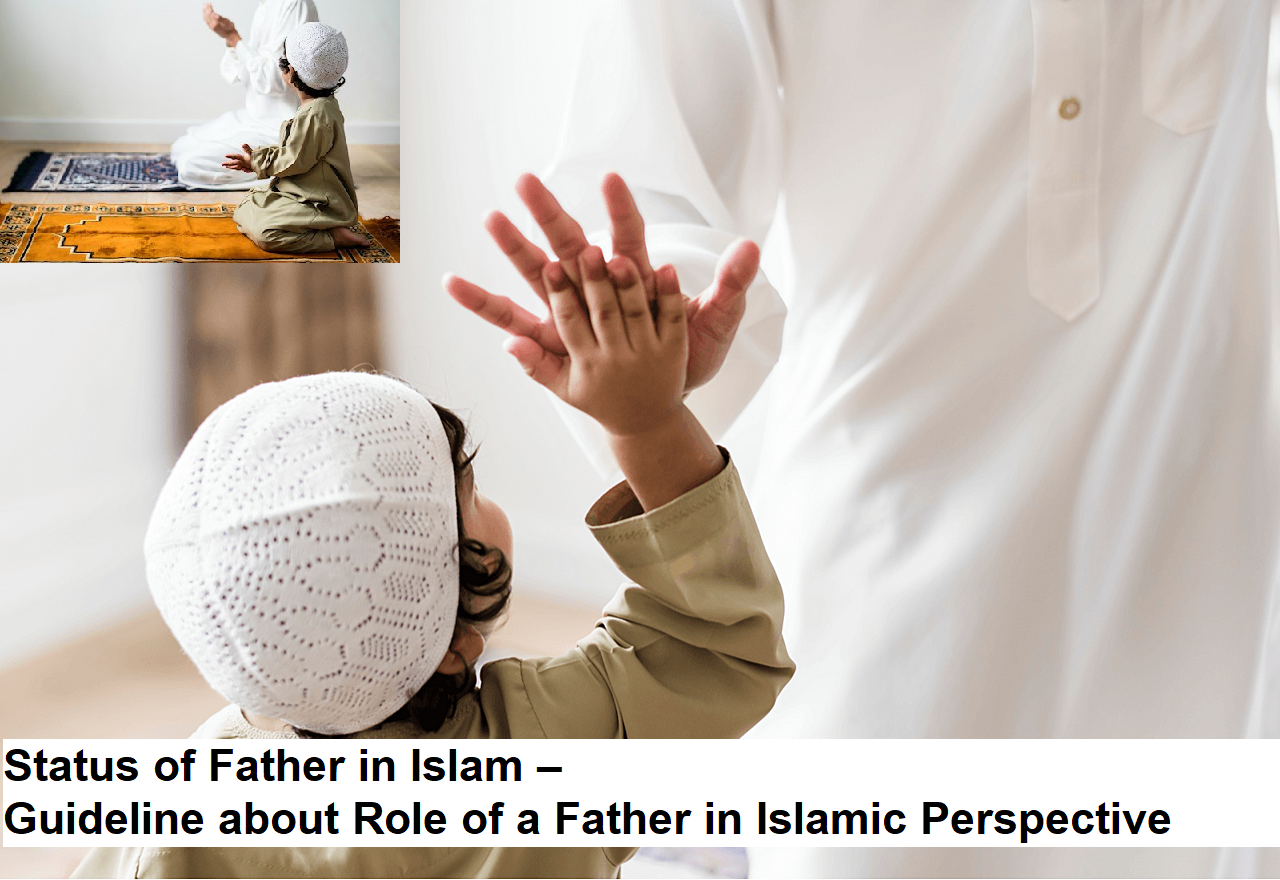In Islam, the status of a father is highly revered and carries significant responsibilities. The Quran and Hadith emphasize the importance of fathers in the family structure and society. Fathers are expected to provide for their families, be positive role models, and instill moral and religious values in their children. The role of a father in Islam goes beyond financial support; it includes creating a loving and peaceful environment, leading the family towards righteousness, and being actively involved in their children’s upbringing. The Prophet Muhammad (PBUH) is considered an ideal role model for fathers, showcasing qualities of kindness, compassion, and wisdom. Ultimately, the father position in Islam is clear because fathers are called upon to emulate the Prophet’s teachings, spend quality time with their children, communicate effectively, lead by example, encourage education, and be supportive of their children’s aspirations. By fulfilling these responsibilities, fathers can play a crucial role in shaping the future of their children and fostering a strong Islamic foundation within the family.
The Responsibilities of a Father in Islam
The responsibilities of a father in Islam are multifaceted and encompass various aspects of a child’s life. Fathers are expected to provide for their families, including food, clothing, and medical treatment, with the father being primarily responsible for meeting these needs. They are also tasked with creating a loving and peaceful environment at home that fosters their children’s spiritual and moral development. Fathers should lead by example, instilling sound religious and moral values through practical examples and leading an exemplary life of love, mercy, and compassion.
Significance of Father
Fathers play a crucial role in their children’s education, both secular and religious. They are encouraged to provide the best academic education possible, accompanied by religious education that teaches the child about Islamic principles and practices. Fathers should also be involved in their children’s upbringing, teaching them good manners, and being present and supportive in their lives. Fathers in Islam are expected to be positive role models, providers, and supporters for their children, embodying the qualities of kindness, compassion, wisdom, and fairness. By fulfilling these responsibilities, fathers can help shape their children’s future and foster a strong Islamic foundation within the family.
Some Hadiths about the Importance of Fathers in Islam
-
- The need for fathers to be just with their children and not burden them with things they cannot handle.
- The role of a man after becoming a father, emphasizing the increased responsibility for nurturing the child.
- The importance of fathers being very responsive towards their children, never neglecting them, and always being ready to hear their problems.
- The great rewards in the afterlife for losing a child, highlighting the significant emotional and spiritual impact of such a loss.
- The merits of raising a devoutly religious child, which can lead to parents earning Jannah (Paradise).
- The blessing of having daughters, with daughters being considered a blessing from Allah and praised in Islamic teachings.
- The significance of providing love and support to children, emphasizing the crucial role parents play in being there for their children in times of need.
How Does Islam View the Role of Fathers in the Family
In Islam, the role of a father is highly valued and carries significant responsibilities. Fathers are expected to provide for their families, both financially and emotionally, by creating a loving and peaceful environment at home. They are responsible for leading their families towards loving Allah and enjoying a successful, happy, and righteous life. Fathers are also tasked with upbringing their children and teaching them good manners and values through their example. Some Hadiths emphasize the importance of fathers in Islam, highlighting their responsibilities, the rewards associated with fulfilling these duties, and the profound impact fathers have on their children’s upbringing and spiritual development. Islam views the role of father in Islam or in the family as essential and multifaceted, encompassing responsibilities such as providing financial and emotional support, creating a loving and peaceful environment, leading by example, and teaching values and good manners. The Prophet Muhammad (PBUH) is considered an ideal role model for fathers, and fulfilling these responsibilities can have a profound impact on children’s upbringing and spiritual development.

